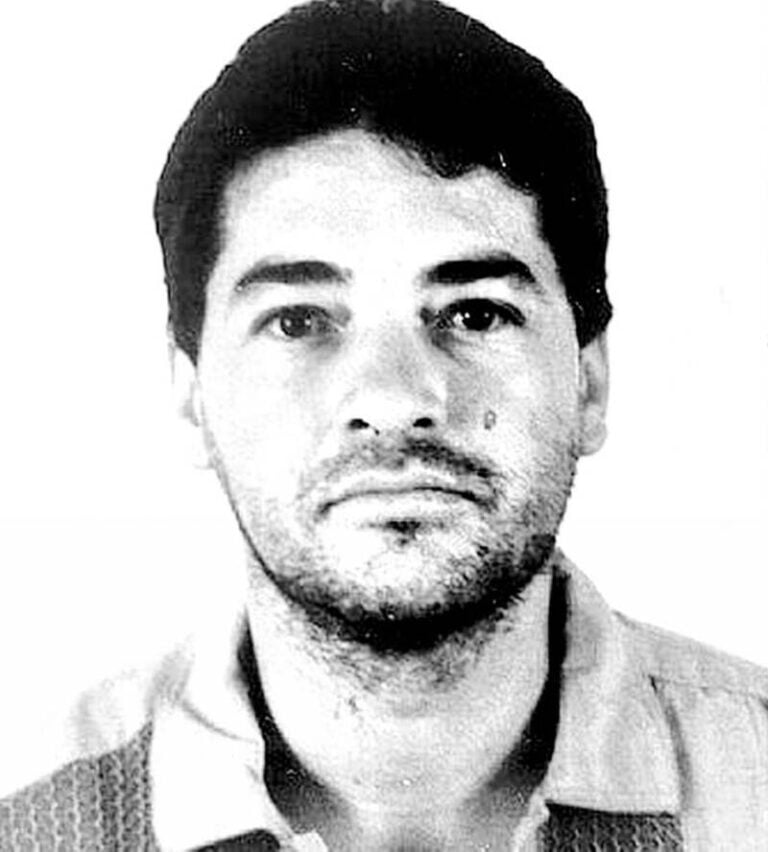Uncovering Pacho Herrera & Cali Cartel Secrets: Fact Vs. Fiction
Was the Cali Cartel's acceptance of Helmer "Pacho" Herrera's sexual orientation a sign of tolerance, or a pragmatic necessity for a man whose loyalty was crucial to their success? It appears the ruthless world of drug trafficking, the cartel embraced Pacho's identity as a means to an end, highlighting the complex interplay of power, loyalty, and personal identity within the organization.
The story of Helmer "Pacho" Herrera is a compelling one, interwoven with the rise and fall of the infamous Cali Cartel. Born on August 24, 1951, in Palmira, Colombia, Herrera emerged as a key figure in the cartel's hierarchy, alongside the Rodrguez Orejuela brothers, Miguel and Gilberto, and Jos Santacruz Londoo, also known as "Chepe." Pachos life, a blend of ruthless ambition and a complex personal life, offers a unique perspective on the inner workings of the Cali Cartel. His story is a testament to the often-contradictory realities of those who navigated the treacherous waters of the drug trade during the 1980s and 1990s. The Cali Cartel, operating out of Colombia, seized control of a staggering 90% of the global cocaine market after the fall of Pablo Escobar. This ascent positioned them as a formidable force, a testament to their operational capabilities and the sheer scale of their illicit enterprise.
| Category | Details |
|---|---|
| Full Name | Helmer Francisco Herrera Buitrago |
| Alias | "Pacho Herrera", "H7" |
| Date of Birth | August 24, 1951 |
| Place of Birth | Palmira, Colombia |
| Date of Death | November 6, 1998 |
| Cause of Death | Shot during a soccer game in prison |
| Role in Cali Cartel | One of the four leaders; in charge of New York operations, negotiations |
| Key Relationships | Miguel Rodrguez Orejuela, Gilberto Rodrguez Orejuela, Jos Santacruz Londoo |
| Criminal Activities | Drug trafficking, money laundering, extortion, kidnapping |
| Known For | Being openly gay within the cartel, expanding the cartel's reach in the US, negotiating with other cartels, his eventual surrender to authorities. |
| Surrender Date | September 1, 1996 |
| Sentence | 7 years, later doubled |
| Alleged Parent | Benjamin Herrera Zuleta |
| Additional Notes | Pacho Herrera's role in moving the cartel's smuggling routes to Mexico proved to be very lucrative. |
| Reference | Wikipedia |
Pacho's loyalty to the Cali Cartel wasn't merely a professional obligation; it was, in many ways, a personal one. The cartel, with its ruthless efficiency and tight-knit structure, offered a sense of belonging and acceptance that was otherwise denied to him. In a society where homosexuality was not widely accepted, especially within traditional family structures, the Cali Cartel became his surrogate family. Benjamin Herrera Zuleta, a man who would likely have disowned him for his open homosexuality, stood in stark contrast to the cartel, which, despite its brutality, appeared to value Pacho for his abilities and contributions.
- John Rocker From Mlb Fireballer To Controversial Figure
- Maura Tierney Height Age Body Stats What You Need To Know
His rise within the organization was swift, and by the late 1970s, he was already on the path to becoming one of the four leaders of the Cali Cartel. This ascent highlights his strategic acumen and the trust placed in him by his peers. He was not only a leader but also a negotiator, trusted to independently lead discussions with other powerful criminal organizations, such as the Medelln Cartel. By 1986, his influence and responsibilities had grown exponentially. The cartel leadership entrusted him with independently leading negotiations with other powerful drug organizations, displaying the high degree of confidence and respect he had earned within the cartel's ranks. He spearheaded operations in New York City, establishing a distribution center and controlling numerous "cells," expanding the cartel's reach in the United States.
The Cali Cartel's origins trace back to a band known as "Los Chemas," initially involved in the theft of goods from transport companies, extortion, and kidnapping. This group, under the leadership of the Rodrguez Orejuela brothers, Miguel and Gilberto, along with Jos Santacruz Londoo, began to evolve, eventually positioning themselves at the forefront of the global cocaine trade. This transformation from petty crime to a multi-billion dollar enterprise marked the rise of the Cali Cartel as a dominant force in the underworld. The intelligence and counter-intelligence operations that began as Escobar targeted the Cali Cartel led to the formation of a dedicated espionage service within the cartel. This service, comprised of five retired military personnel, was created to gather information on Escobar's activities, showcasing the high stakes and the intense rivalry between the two organizations.
Pacho Herreras personal life, especially his openly gay identity, was a known open secret within the cartel. While not openly flaunted, it was accepted, with his reputation protecting him from any overt ridicule. The fact that he wasnt "openly kissing guys in public," as the dramatization portrayed, underscores the complexity of his situation. The cartel's acceptance of his sexuality was not necessarily an endorsement of LGBTQ+ rights but rather a pragmatic calculation. It was understood that Pacho's sexual orientation had no bearing on his ability to contribute to the cartel's success. The cartel's primary focus was on the bottom line, the expansion of their operations, and the elimination of threats. Herrera's role in moving the cartel's smuggling routes to Mexico, a move that proved highly lucrative, further cemented his importance within the organization.
As the Colombian government intensified its crackdown on the Cali Cartel, Pacho Herrera sought to protect himself, surrendering to authorities on September 1, 1996. This surrender was a strategic move, taking advantage of the existing legal loopholes and hoping to mitigate the consequences of his actions. The original seven-year sentence was later doubled, reflecting the severity of his crimes and the ongoing investigations into his activities. His time in prison, however, would be cut short by a violent end. On November 6, 1998, at the age of 47, Helmer "Pacho" Herrera was shot and killed during a soccer game in the prison yard. This marked the end of a life marked by power, notoriety, and the ever-present shadow of danger.
The Cali Cartel's eventual downfall, marked by the arrests of its leaders in 1995 and the subsequent division of the organization, mirrored the fate of the Medelln Cartel. The intelligence gathering operations, the betrayals, and the shifting allegiances all contributed to the eventual collapse of the cartel. The seizure of assets, including 1,751 properties worth an estimated $4.8 billion, further weakened the organization, stripping it of its financial resources and ability to operate. An informant's testimony in June 2012 revealed threats against those involved in the cartels operations, showing the long-lasting impact and the lingering danger associated with these criminal organizations, even years after their peak.
The legacy of Helmer "Pacho" Herrera is one of complexity. He was a man who found a place within a criminal organization, a place that accepted him for who he was while simultaneously demanding his absolute loyalty. The Cali Cartel's acceptance of Pachos sexual orientation was likely a function of pragmatism rather than genuine inclusivity. The cartel's primary interest was in its own survival and success, and Pacho's skills, connections, and capacity for ruthless action made him a valuable asset. While it provided him with protection and a sense of family, it also demanded his full commitment and a willingness to engage in extreme acts of violence and corruption. His story illuminates the complex dynamics of power, identity, and survival within a world where loyalty could be bought, but betrayal was often met with deadly consequences.
- Organic Nuts Soap Nuts Your Guide To Healthy Choices
- Mitch Mcconnell Net Worth How Wealthy Is The Senator

Pacho Herrera, The Flashy And Fearless Drug Lord Of 'Narcos' Fame

Pacho Herrera, the last capo from the Cali Cartel, voluntarily

Cali Cartel leader, Hélmer "Pacho" Herrera speaking to the press after